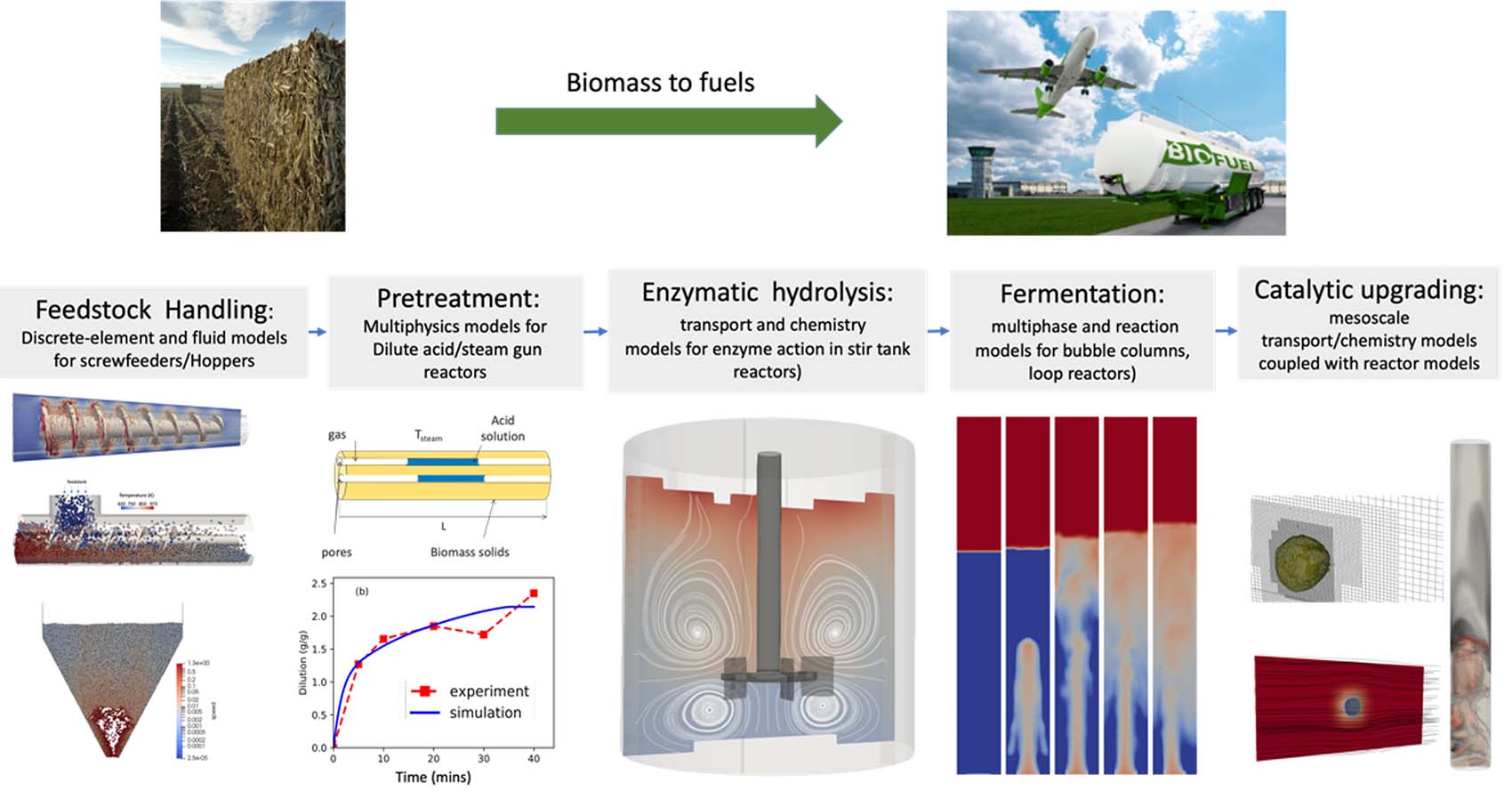Virtual Engineering of Biofuels Software
NLR's Virtual Engineering of Biofuels software framework allows engineers to quickly explore a wide range of candidate biomass processing techniques for bringing second-generation biofuels to market faster.

Simulations of the individual steps of biomass conversion are computationally linked together in a virtual biorefinery, which captures the entire process of converting biomass into second-generation biofuels.
While standalone simulations and models are necessary for accurately predicting the fine-grained interaction physics of a single chemical process, an end-to-end simulation in which the linked outcomes of process one affect process two (and so on) is necessary to predict the overall performance of a bioconversion plant.
The framework is currently designed for biochemical conversion but can be extended to new domains such as thermochemical conversion and with other feedstocks (e.g., plastics, municipal solid waste).
Download Virtual Engineering of Biofuels Codes
The software suite can be accessed via a GitHub repo.
Conventional bioethanol is derived from edible crops that are high in carbohydrates, such as sugar cane or corn. Tomorrow's (second-generation) biofuels could be generated from biomass that is high in cellulose and lignin, such as leaves or the non-edible parts of crops.
For more information, read From Organics to Fuels: Computational Models Can Accelerate and Scale Up Biomass Conversion.
Publications
Multiphysics Modeling and Simulation of High-Solids Dilute-Acid Pretreatment of Corn Stover in a Steam-Explosion Reactor, Chemical Engineering Journal (2015)
Computational Fluid Dynamics Study of Full-Scale Aerobic Bioreactors: Evaluation of Gas–Liquid Mass Transfer, Oxygen Uptake, and Dynamic Oxygen Distribution, Chemical Engineering Research and Design (2018)
Coupled CFD and Chemical-Kinetics Simulations of Cellulosic-Biomass Enzymatic Hydrolysis: Mathematical-Model Development and Validation, Chemical Engineering Science (2019)
A Two-Phase Substrate Model for Enzymatic Hydrolysis of Lignocellulose: Application to Batch and Continuous Reactors, Biotechnology for Biofuels (2019)
Development Team
NLR's virtual engineering of biofuels development team includes Olga Doronina, Hariswaran Sitaraman, and Ethan Young.
Contacts
Share
Last Updated Dec. 4, 2025
